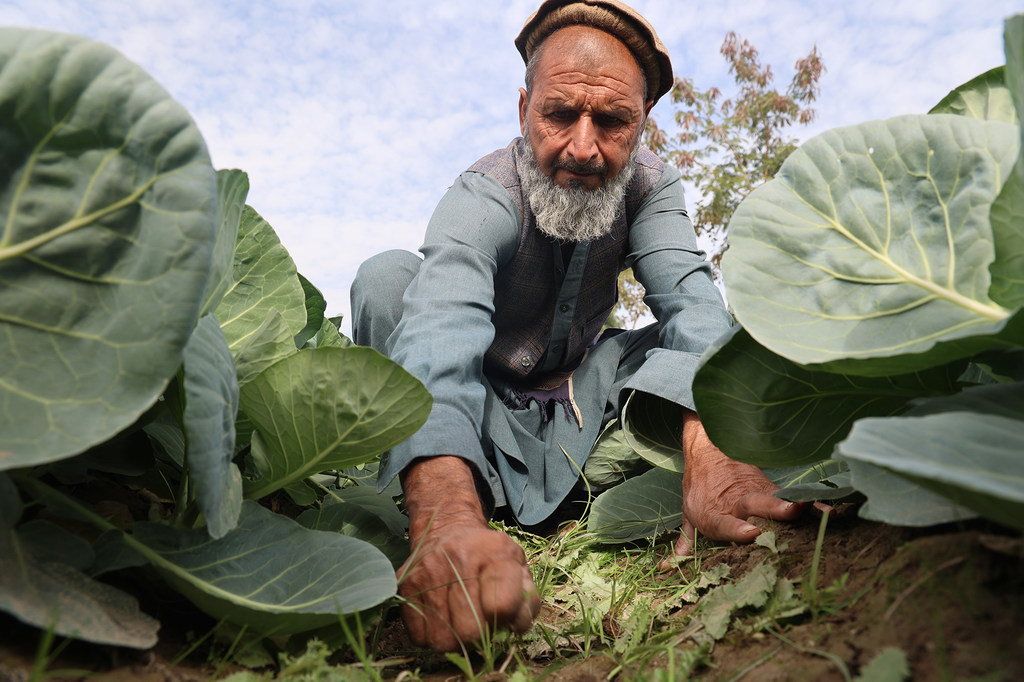Business
Opium Cultivation Falls 20% in Afghanistan, Trafficking Evolves

Opium poppy cultivation in Afghanistan has decreased by 20% compared to the previous year, marking a significant decline since the nationwide ban imposed by the Taliban in 2022. This reduction reflects ongoing efforts to combat drug production in the country. However, the landscape of drug trafficking is evolving, presenting new challenges as synthetic drugs gain prominence and trafficking routes shift.
The United Nations reports that the decline in opium cultivation is part of a broader strategy to curb narcotics production. Despite the decrease in opium poppy fields, Afghanistan remains a critical player in the global drug trade. The introduction of synthetic drugs, such as fentanyl, has altered the dynamics of the market, complicating enforcement and prevention efforts.
Shifting Trafficking Routes and Synthetic Drug Challenges
While traditional opium production has declined, the rise of synthetic drugs poses a significant threat. Criminal organizations are adapting by rerouting their trafficking operations to accommodate the increased demand for these substances. The UN highlights that this shift not only complicates law enforcement but also raises public health concerns as the availability of potent synthetic drugs increases.
According to the United Nations Office on Drugs and Crime (UNODC), the global opioid crisis has intensified, and Afghanistan’s role in this crisis cannot be underestimated. The report emphasizes the urgent need for international cooperation to address not only the cultivation of opium but also the pressing issue of synthetic drug trafficking.
The Taliban’s commitment to eradicating opium production reflects their attempt to gain legitimacy both domestically and internationally. However, the reality on the ground showcases a complex interplay of local and global factors that influence drug production and trafficking.
Despite the drop in cultivation, Afghanistan remains the world’s largest producer of opium. The UNODC estimates that the country accounted for over 80% of global opium production in recent years. Efforts to curb this phenomenon must consider the socio-economic conditions that drive farmers to cultivate opium poppies as a means of survival.
Implications for Policy and International Cooperation
The decline in opium cultivation presents an opportunity for policymakers to explore alternative livelihoods for farmers. Sustainable development programs that offer incentives for crop diversification could significantly impact rural communities. However, the rise of synthetic drugs complicates this effort, as traffickers shift focus to more profitable and less regulated substances.
International organizations, including the UN, are calling for enhanced collaboration among nations to tackle the multifaceted nature of drug trafficking. The evolving landscape necessitates a coordinated response that addresses both the supply of drugs and the demand that fuels the market.
As Afghanistan navigates these challenges, the global community must remain vigilant. The situation underscores the need for comprehensive strategies that encompass not only cultivation and trafficking but also public health initiatives to mitigate the impact of both opium and synthetic drugs on societies worldwide.
In conclusion, while the 20% decline in opium cultivation is a positive step, the ongoing challenges posed by synthetic drugs and changing trafficking routes require a concerted and collaborative approach to ensure lasting solutions.
-

 Science3 weeks ago
Science3 weeks agoInterstellar Object 3I/ATLAS Emits Unique Metal Alloy, Says Scientist
-

 Politics3 weeks ago
Politics3 weeks agoAfghan Refugee Detained by ICE After Asylum Hearing in New York
-

 Business3 weeks ago
Business3 weeks agoIconic Sand Dollar Social Club Listed for $3 Million in Folly Beach
-

 Health3 weeks ago
Health3 weeks agoPeptilogics Secures $78 Million to Combat Prosthetic Joint Infections
-

 Lifestyle3 weeks ago
Lifestyle3 weeks agoJump for Good: San Clemente Pier Fundraiser Allows Legal Leaps
-

 Science3 weeks ago
Science3 weeks agoResearchers Achieve Fastest Genome Sequencing in Under Four Hours
-

 Science3 weeks ago
Science3 weeks agoMars Observed: Detailed Imaging Reveals Dust Avalanche Dynamics
-

 Health3 weeks ago
Health3 weeks agoResearcher Uncovers Zika Virus Pathway to Placenta Using Nanotubes
-

 World3 weeks ago
World3 weeks agoUS Passport Ranks Drop Out of Top 10 for First Time Ever
-

 Entertainment3 weeks ago
Entertainment3 weeks agoJennifer Lopez Addresses A-Rod Split in Candid Interview
-

 Business3 weeks ago
Business3 weeks agoSan Jose High-Rise Faces Foreclosure Over $182.5 Million Loan
-

 Top Stories3 weeks ago
Top Stories3 weeks agoChicago Symphony Orchestra Dazzles with Berlioz Under Mäkelä









